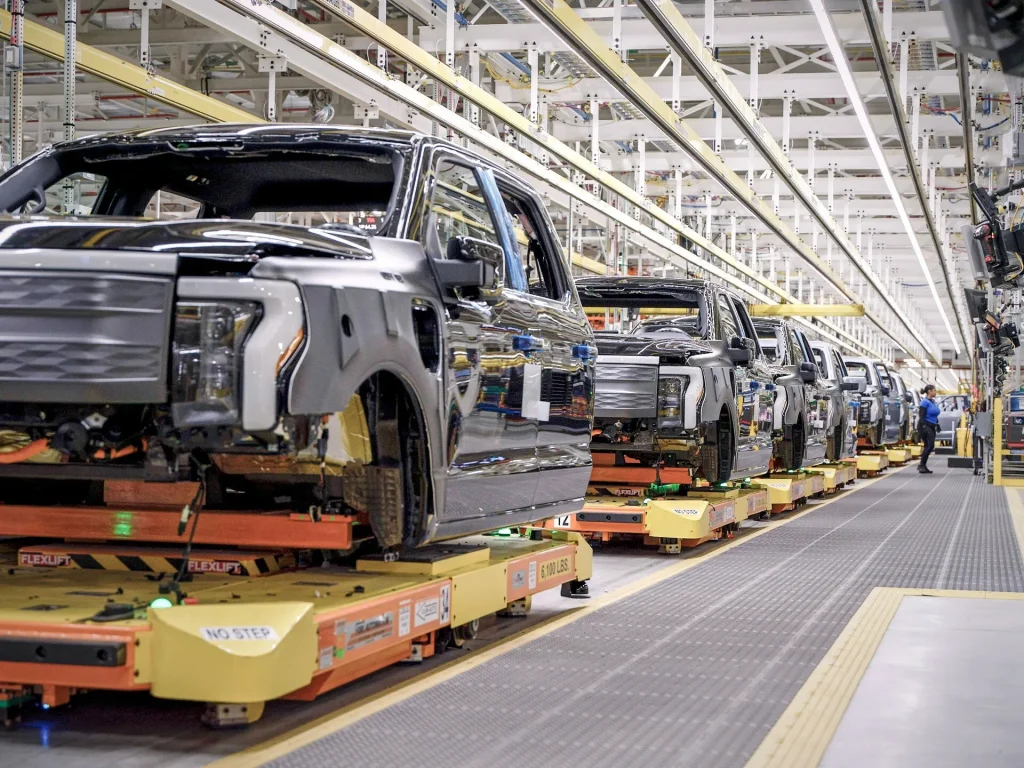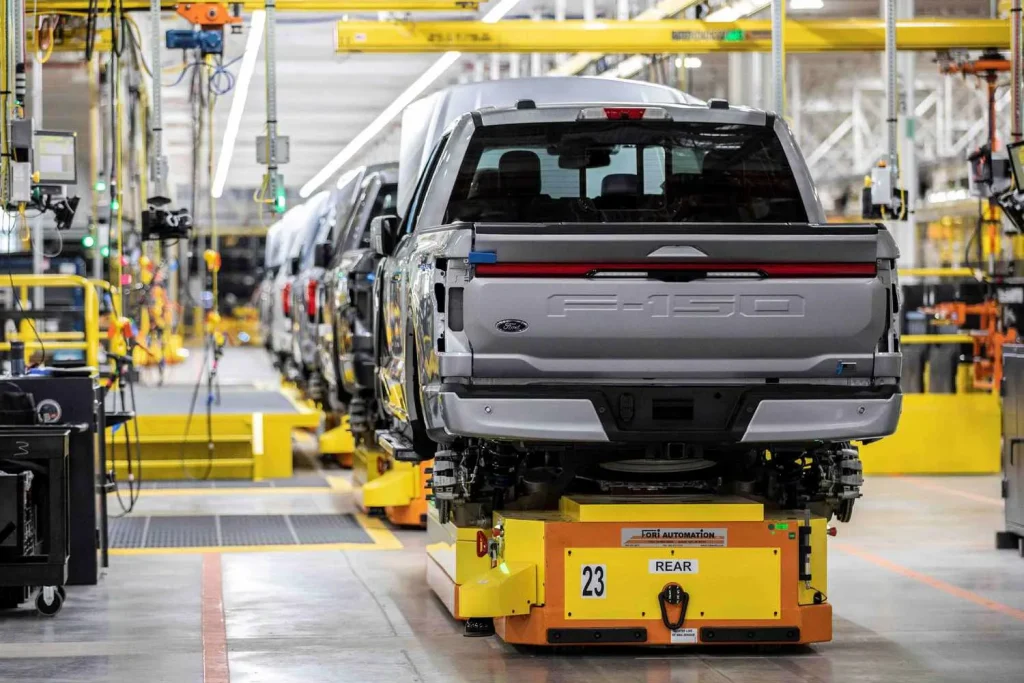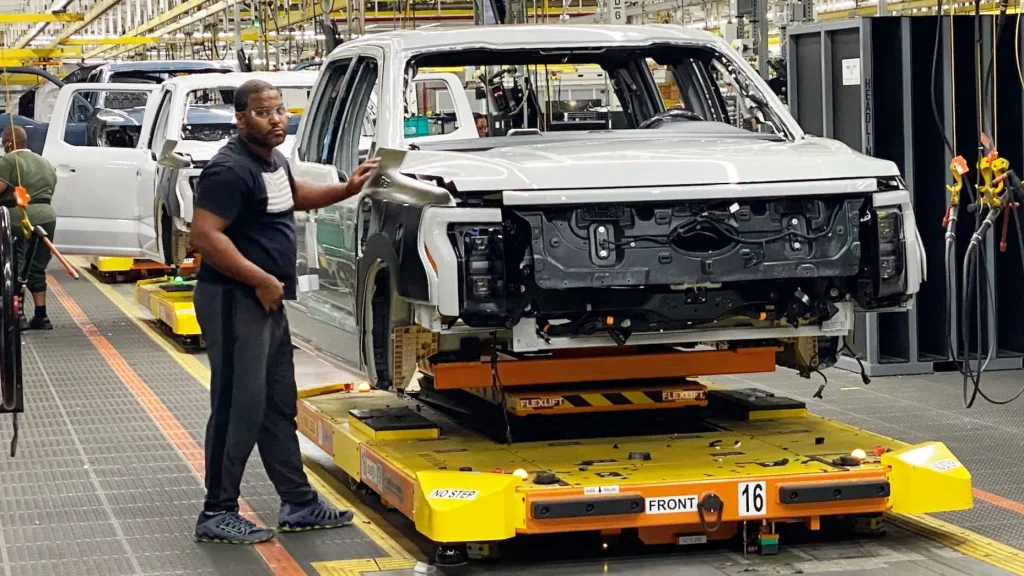Ford Halts F-150 Lightning Production as EV Sales Decline
Ford Motor Company has announced a seven-week halt in the F-150 Lightning production at its Rouge Electric Vehicle Center near Detroit. The planned pause, scheduled from Nov. 18 through Jan. 6, 2025, aims to reduce losses from the electric pickup truck and manage the excess of those vehicles in inventory. The decision to suspend F-150 Lightning production comes as a result of slower-than-expected sales growth in the electric vehicle (EV) market.
About 730 hourly workers at the Michigan facility will be affected by the temporary layoff, but not all of them will be out of work for the total stoppage. The move to halt F-150 Lightning production underscores the challenges Ford faces as it navigates the highly competitive and rapidly evolving EV landscape.
Subsidizing Sales and Incurring Losses
F-150 Lightning sales soared 86% this year, but Ford’s losing money on each truck sold. Instead, dealers have been getting as much as $1,500 in incentives for every 2024 model ordered from the company’s new regional EV distribution centers, which it has been heavily subsidizing sales at. The F-150 Lightning production pause is a stark contrast to Ford’s initial plans to significantly increase output, as the company has now slashed its planned production by 50% this year.
Ford expects its Model e division, focused on building EVs, to lose nearly $5 billion in 2023. But executives are upbeat, saying they’ll produce future generations of EVs at lower costs and become profitable within a year of launch.

Broader Challenges in the EV Market
The decision to halt F-150 Lightning production reflects the broader challenges faced by the EV market. By late September, Ford’s overall new inventory supply had risen to 112 days, with many individual models — including the F-150, Mustang Mach-E SUV, and E-Transit Van — having much higher supply levels. This is no different from the struggle the company is facing, as other automakers are also dealing with higher competition and changing market demands.
It’s not just U.S. operations that are struggling, Ford is also having problems in its European division, cutting production at its Cologne plant. Output at the plant, which saw a $2 billion revamp to support EV production, has also been trimmed on newer models like the Explorer Electric and the Capri reboot. ‘Vehicle maker Zap aims for sports car to use rail link,’ ABC Radio Australia writes, adding that its ‘Electric vehicle maker Zap cited rapidly deteriorated market conditions for electric vehicles as the reason.’

Adapting to the New Normal
The temporary halt in F-150 Lightning production serves as a microcosm of the shifting dynamics among major car manufacturers trying to transition to electric vehicles. Prevailing predictions that the EV business would grow swiftly have yet to pan out, and seem, at the present juncture, to depend on consumer acceptance and financeviability. Rivian and other of Ford’s rivals are also adjusting to install even less production on similar market pressures.
In response to the new normal brought on by market trends and consumer behaviors, the automotive industry is reconceptualizing production targets and operational strategies. The decision to pause F-150 Lightning production is part of Ford’s recalibration efforts in response to these challenges.

The Future of Electric Vehicles
Looking forward, the industry leaders are revitalizing ways in conjunction with EV production more and more, replacing old methods with more sustainable ones and the ones in line with affordability without losing the meaning of advanced technology. Customers will play a critical role in this transition and the overall vehicle supply chain will need to be reevaluated.
While the temporary halt in F-150 Lightning production may be seen as a setback, it also presents an opportunity for Ford and other automakers to reassess their strategies and adapt to the ever-changing automotive landscape. Although it might be too late to compete with Tesla, manufacturers must be agile in order to continue to adapt to the demands of consumers and the trends of the market to maintain the long term success of electric vehicles.
The pause in F-150 Lightning production is a reminder that the transition to EVs is not without its challenges. But with further innovation, greater collaboration, and a customer need inspired mandate, the automotive industry can overcome these hurdles and lead us all into a clean and electrified future.
